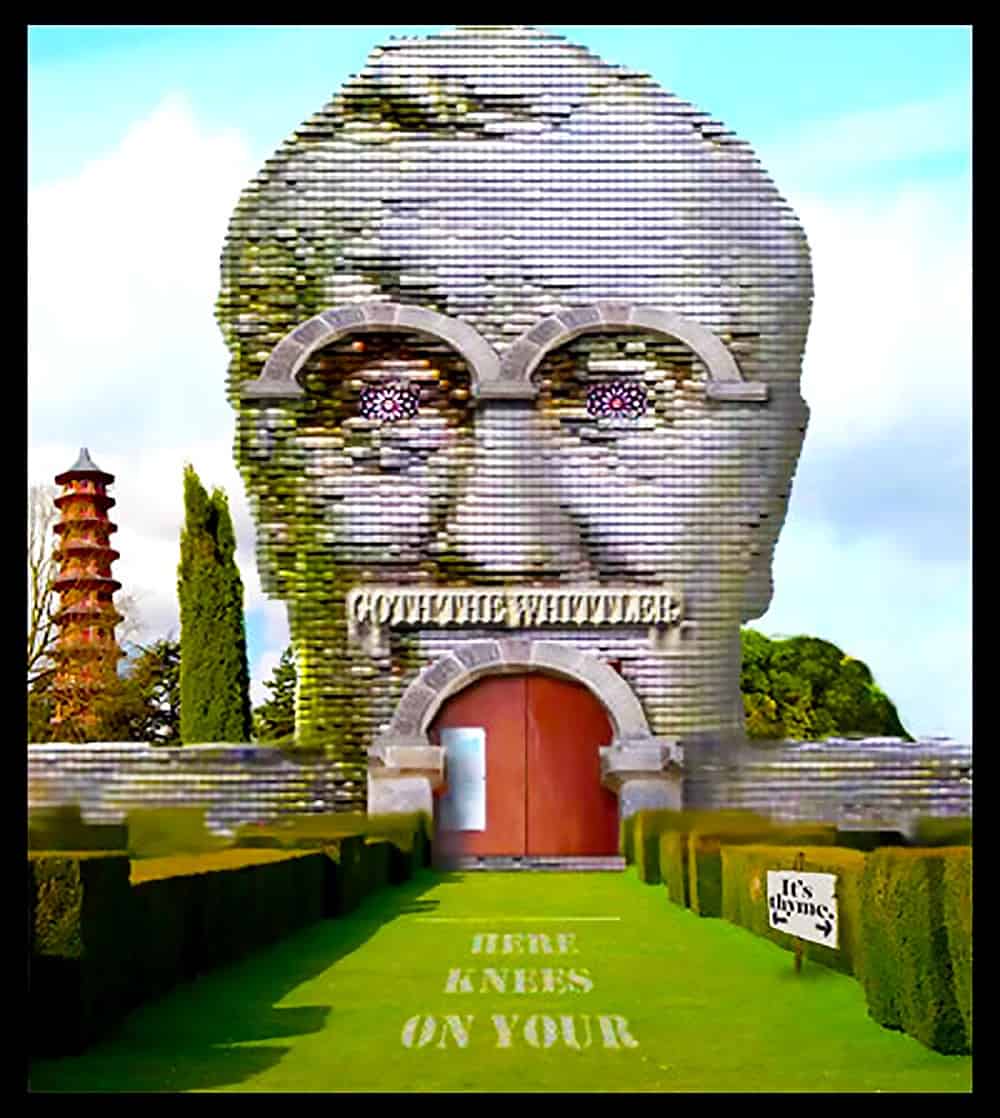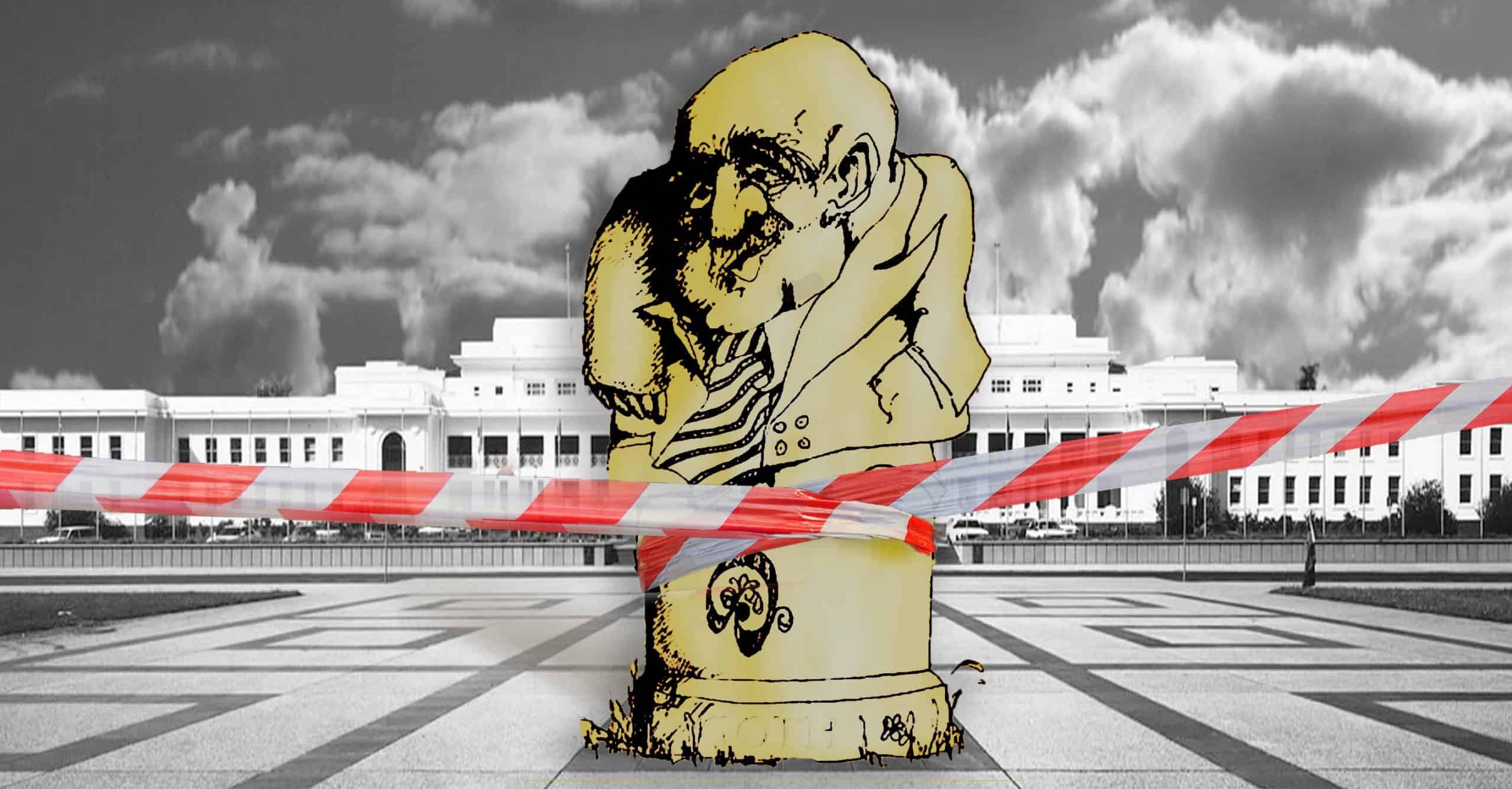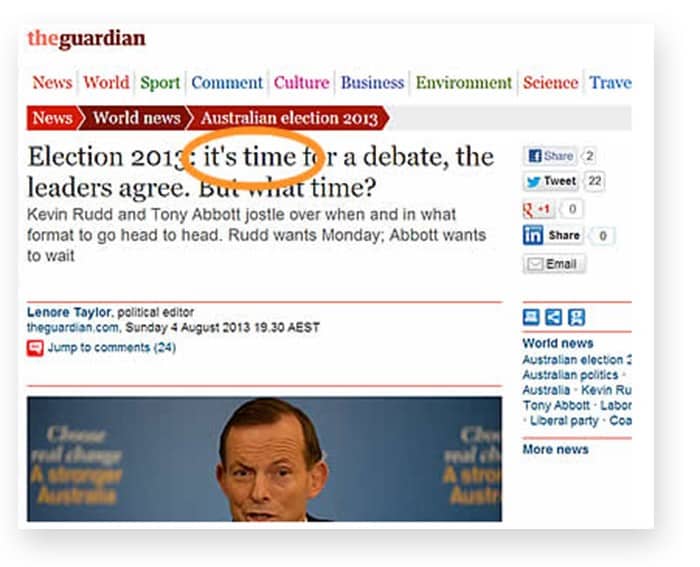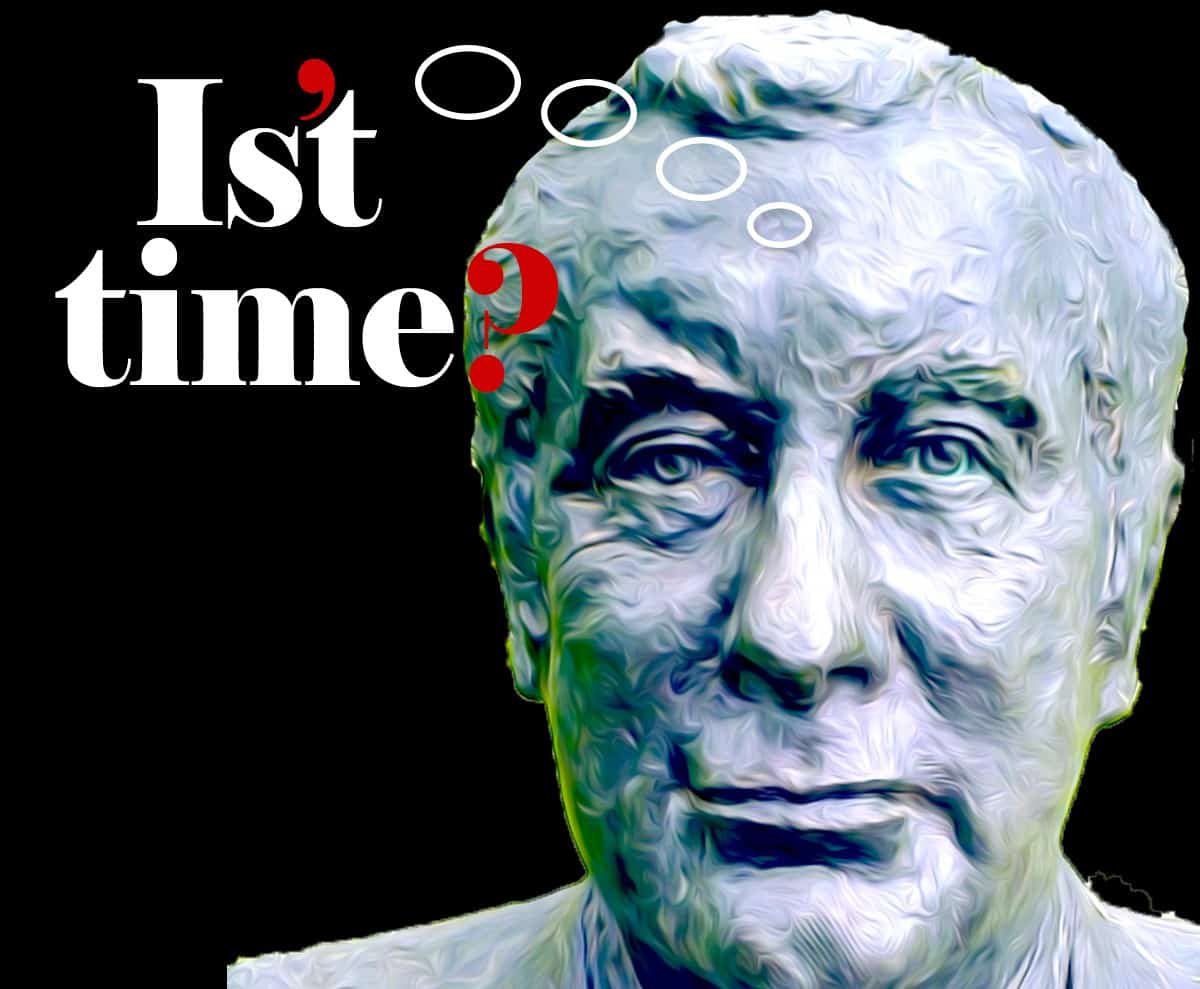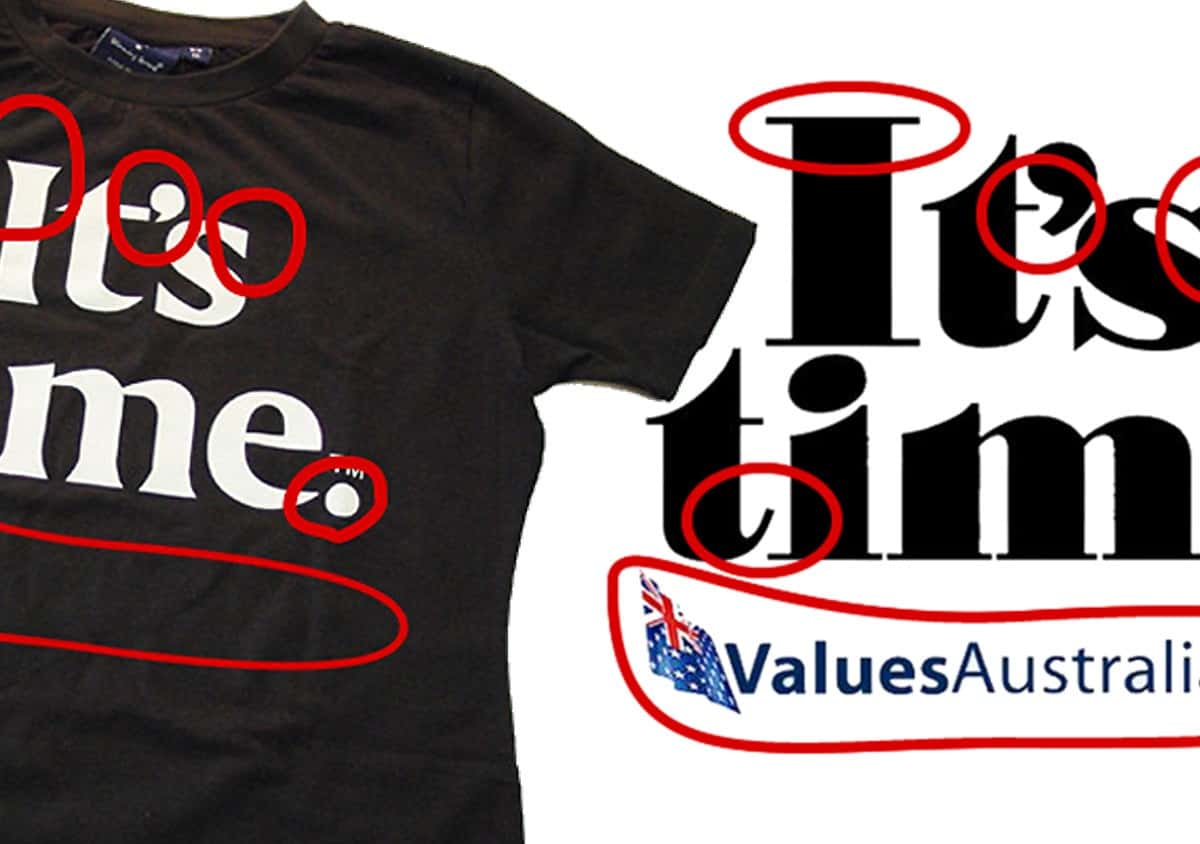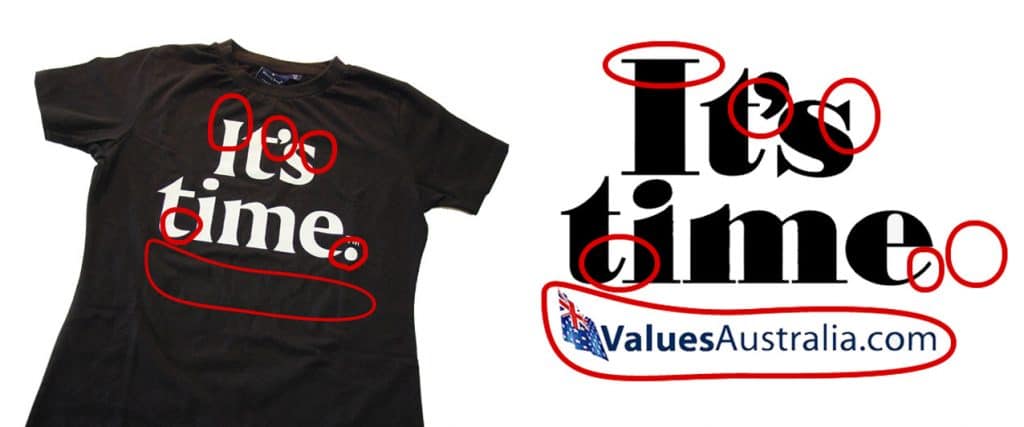Men and Whitlam of Australia
Men and Whitlam of Australia
On Your Knees
Men and Whitlam of Australia . . .
“ T he decision we will make on December 2 is a choice between the past and the future, between the habits and fears of the past and the demands and opportunities of the future. There are moments in history when the whole fate and future of nations can be decided by a single decision. For Australia, this is such a time.
“We will abolish conscription forthwith.
“We will abolish fees at universities and colleges of advanced education.
“We want to give a new life and a new meaning in this new nation to the touchstone of modern democracy
— to liberty, equality, fraternity.”
Yes, sadly
It’s time.
Now is the time to say goodbye.
Now is the time to yield a sigh.
Now is the time to wend our way-eee,
Until we meet again
Some sunny day
Time to bid farewell to a fading myth of the socialist left that no-one under 40 has ever heard of: old plinth-bound, red-taped Goth the Whittler whose soul, vision and legacy are chained and frozen in stone within the walls of the Wiblam Edifice, protected by the Hooded Brethren of the Whitlam Industry (UWS) Inc.
His name was “Goth”, now a legal personage, a mere trademark, hijacked by a “controlled entity” bearing the name of the once terrifying but now sadly faded and hardly remembered mythical hero of long ago.
His time, comrade, was a time of social earthquake, of cultural lightning and of political tempest whose like we shall not see again.
Heralded by fiery comets, bare-chested and thumping did he unchain the creativity of the nation’s sleeping Beast.
With the life-giving elixir of freedom did he quench the crumbling leaves of its dreams.
And “Liberté, Egalité! Fraternité!” was his battle cry. To those who awoke it was as if St Crispin himself were there amongst them.
And the Beast was roused! It shook off the dust of the dead, Mingsian years and romped and played for joy.
But the Beast grew and grew and its liberator, though mighty, was no match for the Beast which became a monster and destroyed him.
The largest stars shine brightest and briefest and explode with shocking spectacle. And are gone.
Their glowing supernova remnants linger for a time but fade and are forgotten.
As Oscar Wilde almost wrote of the Star Child,
“ Yet ruled he not long, so great had been his suffering, and so bitter the fire of his testing, for after the space of three years he was destroyed. And those who came after him ruled evilly.”
And they still do, and today they promise to rule more evilly than ever before.
If there is one thing Sir Roger despises it is people who are so far up themselves they can look through the back of their own eye sockets, and who then insist that everyone else take them seriously. Such are the rulers of our day, the Mad Rabbit, Jolly Joe Porker, the Cormorant and the Death Stare.
Yet still a few remember the torpid days of The Beige Oppression and The Monochrome Society during the reign of Ming the Dreadful and his inept successors. And these few who remember know and cherish the bright and cheerful contrast of The Sir Gough Rainbow.
Sir Roger since 1972 has found in every new day a new excitement, a new challenge, a creative opportunity to influence his world for the better and to make it a better, more loving and more humane place – much the way that Gough inspired us all to do and be.
And everyone now has the constitutional right, the moral duty and the precious freedom to do so.
So now to Gruff the farter, Gog the sun and Goth the gruff old goat.
Gough be with you.
![]()
But wait! This just in:
TONY BURKE:
The late Cardinal Clancy used to often relate about his conversation with Gough when Gough had inquired as to whether or not St Mary’s Cathedral might be available for a funeral, which surprised Cardinal Clancy given that he was not expecting Gough to convert to Catholicism.
Gough explained: no, no, no, it wasn’t for the Catholic funeral — it was because he wanted to be buried in the crypt, claiming that he was willing to pay but would only require it for three days.
Is there yet hope?



